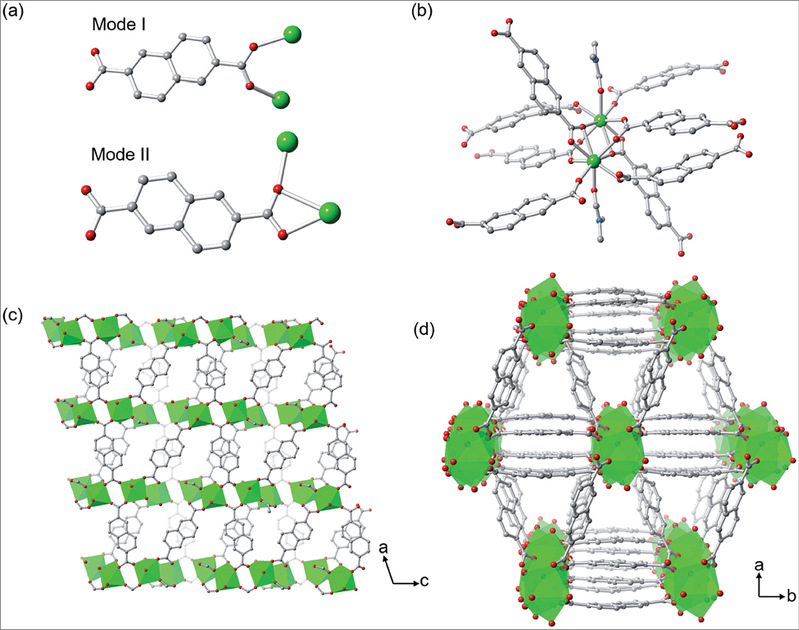
Yifang Zhao, Meng-Yan Wan, Jian-Ping Bai, Heng Zeng, Weigang Lu and Dan Li *

Abstract: Single-emission probes have demonstrated limited application in complex systems because the signal can be easily disrupted by many non-analyte factors. MOF-based luminescence sensors have been widely explored due to their structural abundance and tunability. Herein, we report a dual-emitting Eu-MOF (1), constructed by Eu(NO3)3 and 2,6-naphthalenedicarboxylic acid (H2NDC), exhibiting a specific luminescence switching between red and blue within a pH range of 3 to 4. Through the study of singlecrystal to single-crystal (SC-SC) transformation, the switching mechanism was proposed to involve the displacement of the coordinated DMF by water molecules and the slight elongation of the Eu-O bond to the ligand. These tiny changes in the local coordination environment might hinder the energy transfer from the ligand to the metal, therefore quenching the luminescence of the Eu ion and enhancing that of the ligand. With the specific pH-modulated luminescence switching property, 1 could be used as a short-range pH sensor and applied in the rapid detection of aspartic (Asp) and glutamic (Glu) acids amongst other amino acids.
文章链接:![]() C9TA00384C.pdf
C9TA00384C.pdf




